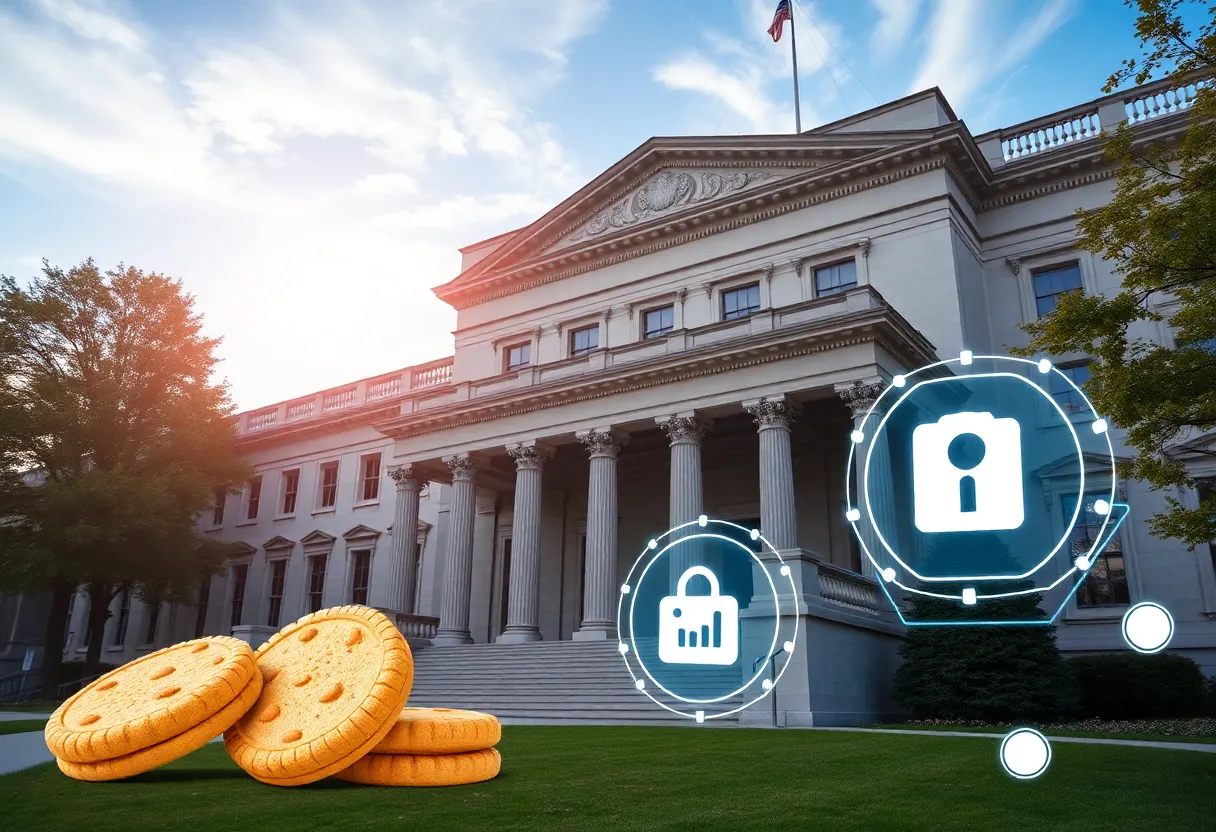California, September 1, 2025
News Summary
The California Senate unanimously approved Senate Bill 690, aiming to protect online businesses from lawsuits under the California Invasion of Privacy Act. The bill seeks to exempt certain uses of online tracking technologies, like cookies, from liability, alleviating the burden on small and medium-sized enterprises that face predatory litigation. With a focus on offering clarity and reducing confusion around privacy laws, this bill could reshape the legal landscape for businesses engaging in online tracking. Pending approval from the Assembly, SB 690 represents a significant shift in privacy law enforcement in California.
California Senate Passes Bill to Limit Abusive Lawsuits Against Online Businesses
The California Senate has passed Senate Bill 690 (SB 690) with a unanimous vote of 35-0, aimed at protecting online businesses from a rising tide of lawsuits under the California Invasion of Privacy Act (CIPA). If approved by the Assembly, this bill seeks to exempt certain commercial uses of online tracking technologies like cookies from CIPA liability, effectively reducing predatory litigation against small and medium-sized enterprises.
CIPA is a wiretap statute that strictly restricts the interception of electronic communications and necessitates consent for any such interception. Lawyers across California have argued that the prevalent use of online tracking technologies, such as Meta Pixel, Google Analytics, and LinkedIn Insight, constitutes a violation of CIPA. They claim these technologies intercept electronic communications between websites and their visitors, including clicks and keystrokes.
Small to mid-sized businesses have become the primary targets for these lawsuits, as legal action against technology providers tends to be far more costly and presents risks of setting unfavorable legal precedents surrounding CIPA. Class-action lawsuits can lead to statutory damages amounting to $5,000 per visit to a website, compelling businesses to face settlement demands between $50,000 and $200,000. This often forces businesses to choose to settle, as litigation costs can quickly escalate beyond their budget.
A significant judicial ruling in the U.S. District Court for the Northern District of California has recently changed the landscape of CIPA liability. In the case of Torres v. Prudential Financial, Inc., the court determined that merely collecting data does not breach CIPA if the tracking provider does not actively read or attempt to read user communications while they are in transit. This verdict has created a more favorable environment for businesses, as it narrows the scope of potential CIPA violations.
Senator Anna Caballero introduced SB 690 on February 24, 2025, in response to the surge of lawsuits facing businesses. The bill aims to restore legal certainty and allow businesses to concentrate on complying with privacy statutes rather than mounting defenses against costly lawsuits. By aligning the definition of “commercial business purpose” with that of the California Consumer Privacy Act (CCPA) and California Privacy Rights Act (CPRA), SB 690 is designed to clarify acceptable business practices concerning online tracking technologies.
One notable aspect of the bill is its removal of retroactive provisions; meaning it will not affect any current pending cases and would apply only to actions commenced after its enactment. As SB 690 awaits consideration in the Assembly, its passage could mark a pivotal shift in delineating privacy law, reducing the burden of litigation faced by businesses utilizing cookies and other tracking technologies.
Key Features of SB 690
- Unanimously passed by California Senate with a vote of 35-0.
- Seeks to exempt commercial uses of cookie-related tracking technologies from CIPA liability.
- Aims to prevent private lawsuits related to the processing of personal information for business purposes.
- Aligns definitions with CCPA and CPRA to reduce confusion over privacy laws.
- No retroactive application, ensuring it only affects future litigation.
Background on CIPA Lawsuits
California’s Invasion of Privacy Act has become the backbone for many lawsuits targeting online companies, leveraging the growing concerns around digital privacy and the use of data tracking methodologies. While the intention behind CIPA is to protect against invasions of privacy, the surge of litigation has created an environment where many businesses are increasingly anxious about their compliance with the law. As legal battles continue to shape the landscape, legislation like SB 690 aims to provide a more balanced approach that supports business operations while maintaining consumer privacy standards.
FAQ
What is Senate Bill 690?
Why is SB 690 significant for businesses?
What constitutes a CIPA violation?
What is the next step for SB 690?
Chart of Key Features of SB 690
| Feature | Description |
|---|---|
| Unanimous Vote | Passed by California Senate with a 35-0 vote. |
| Exemption from CIPA | Commercial uses of online tracking technologies exempted from CIPA liability. |
| Private Lawsuits | Prevents private lawsuits for processing personal information for business purposes. |
| Alignment with CCPA/CPRA | Definition of “commercial business purpose” aligns with CCPA and CPRA. |
| Future Application | Does not affect pending cases; will apply prospectively. |
Deeper Dive: News & Info About This Topic
- California SB 690 Passes Senate – National Law Review
- Federal Judge Denies CIPA Lawsuit – JD Supra
- Beginning of the End for CIPA Litigation – Daily Journal
- Wikipedia: California Invasion of Privacy Act
- Google Search: California privacy lawsuits

Author: STAFF HERE BEVERLY HILLS WRITER
The Beverly Hills Staff Writer represents the experienced team at HEREBeverlyHills.com, your go-to source for actionable local news and information in Beverly Hills, Los Angeles County, and beyond. Specializing in "news you can use," we cover essential topics like product reviews for personal and business needs, local business directories, politics, real estate trends, neighborhood insights, and state news affecting the area—with deep expertise drawn from years of dedicated reporting and strong community input, including local press releases and business updates. We deliver top reporting on high-value events such as the Rodeo Drive Concours d'Elegance, the Beverly Hills artSHOW, Concerts on Canon, and holiday celebrations throughout the city. Our coverage extends to key organizations like the Beverly Hills Chamber of Commerce and Visit Beverly Hills, plus leading businesses in luxury fashion, hospitality, and entertainment that drive the local economy. As part of the broader HERE network, including HERELosAngeles.com, HERESantaAna.com, HEREHuntingtonBeach.com, and HERECostaMesa.com, we provide comprehensive, credible insights into Southern California's dynamic landscape.



